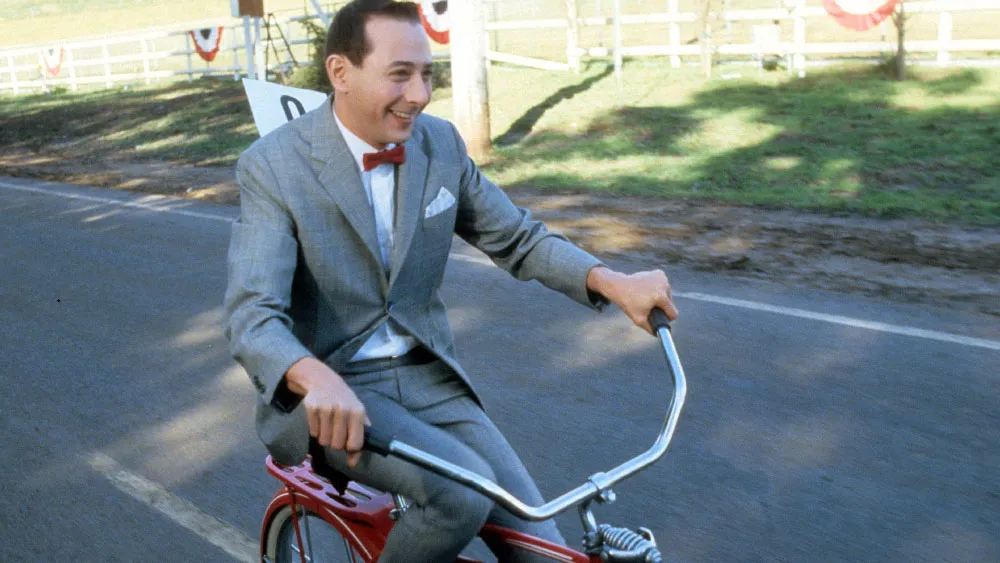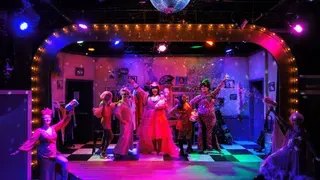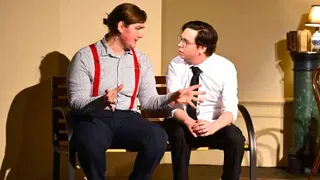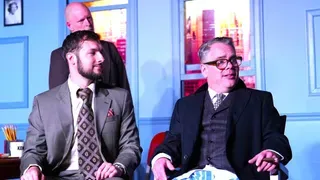June 15, 2004
The Wedding Banquet
Kilian Melloy READ TIME: 4 MIN.
Ang Lee's star has risen dramatically over the last decade, hisi recent less-than-critically acclaimed venture into comic book cinema (2003's -Hulk-) notwithstanding. Lee has garnered accolades for his incisive, and insightful, scrutiny of American family dynamics in the turbulent 1970s (-The Ice Storm-), as for his ability to translate classic literature to the big screen (-Sense and Sensibility-), but his biggest breakthrough was 2000's -Crouching Tiger, Hidden Dragon-, a film that combined the thrill of Kung Fu choreography on wires with the beauty and formalism of the Chinese novel upon which the film was based.
But for all his success in cross-cultural cinema, nowhere does Lee's ability to play with, and play across, lines and borders shine so brightly as in his second film, the 1993 gem -The Wedding Banquet-, where it was simply a matter of setting Chinese and American social customs and family strictures into spark-generating proximity, but of also including the issue of sexuality. This was one of the first films in America to take a look at gay relationships that was not mired in stereotype and dreary tragedy; quite the opposite: the movie was based on the screwball romantic comedies of old, and the ethnic tensions and sexual politics that Lee and co-writers James Schamus and Neil Peng threw into the mix buffed, brightened, and modernized the genre with heart and charm.
The story concerns domestic affairs between Chinese businessman Wai Tung (Winston Chao) and his American life partner Simon (Mitchell Lichtenstein) as much as international matters of family politics. Wai Tung is uptight to the point of humorless, perpetually worried about his real estate deals. The constant long-distance barrage from his parents, who desperately wish him to marry, adds more stress and strain to his wracked nerves and his home life with Simon, who for his part tries his best to be understanding, but who cannot help feeling disappointed when Wai Tung's business problems interfere with their plans for romantic time alone. Wai Tung's tenant Wei Wei (May Chin) -- who cannot understand why Wai Tung doesn't go for her sexy looks and artistic temperament -- is one more worry, as she lacks a green card, rent money, or prospects for her presumptive career as a painter. When Wai Tung pays Wei Wei a visit, it's more than the summer heat and the lack of air conditioning that steams up her flat, but Wai Tung is uncomfortably impervious to her charms. Still, Wei Wei's plight plucks a feeling of concern in Wai Tung, and when Simon suggests a way to save Wei Wei from deportation, while garnering Wai Tung a huge tax break and getting his parents off his back, it seems such an ideal solution to so many difficulties that Wai Tung rushes in and proposes marriage to Wei Wei.
Now things get fun and troublesome. Upon hearing the news, Wai Tung's parents make hasty preparations for a trip to New York to see their son get married, even though Wai Tung's aging father, Mr. Gao (Shihung Lung), is in failing health. A merry pantomime of heterosexual bliss ensues, with Simon gamely playing the part of Wai Tung's landlord, but the strain and tension of the occasion mount up in ways no one foresees -- especially when fate takes a hand in the matter and a huge wedding feast becomes the inevitable aftermath to Wai Tung's optimistically brief, minimal wedding at the county clerk's office. (This is one of the film's funniest sequences, second only to the preparations that go into the feast itself; Wei Wei's English deserts her, in an improbable but uproarious turn, as she struggles to say her vows and ends up promising herself to Wai Tung "Until sickness and death!")
The elaborate charade is doomed to fail, of course, because that is the movieland fate of such facades (and the more desperate the ruse, the bigger the laughs when it all falls down). But there's a powerful grace and dignity present as the characters wrestle with issues of family and obligation versus flexibility and individual happiness. Wai Tung's bewildered mother (Ah Lei Gua) and serene, impeccably disciplined father may not understand everything that's going on -- in part because of the language barrier, which the film has a jolly time mining for comic material, but also because of the innate culture shock and the quite non-traditional generation gap that results -- but they have the good sense in the end to accept what they cannot entirely grasp out of love for their son.
The DVD release of -The Wedding Banquet- is curiously tardy; it was possible before now to get Ang Lee's obscure (in this country, anyway) first film, -Pushing Hands-, on the digital format long before now, even though, like -The Wedding Banquet-, large parts are in Chinese (and, unlike -The Weddng Banquet-, no subtitles are provided). But it's here now, and that's something to celebrate. Though there is little in the way of supplemental material, the disc does include an interview with Ang Lee and James Schamus that reveals some tasty tidbits about the film's origin and development. Though Ang Lee is heterosexual, he did take a huge risk with his family relations in coming to America to pursue a career in film -- and it is that drive and talent for the theatrical arts that provides the title of the interview, which is called "A Forbidden Passion." Lee also praises Shihung Lung, who plays the elderly Mr. Gao, and who starred in -Pushing Hands-, saying that the actor's face is representative of all parts of China, and expresses both a deep weariness -- the "five thousand years of sexual repression" cited in the film, but also five thousand years of duty and obligation -- and a paternal concern that mixes love and humor. Schamus, who looks scholarly in his three-piece suit, has co-written all but the first of Ang Lee's films, and he offers a cursory history in the "No Budget Film" project that led to his partnership with Lee and to the making of -The Wedding Banquet-.
No film library belonging to an Ang Lee fan, a devotee of comedy, or and out and proud gay American (or Chinese citizen, for that matter) could conceivably be complete without this DVD, which is a true must.
Kilian Melloy serves as EDGE Media Network's Associate Arts Editor and Staff Contributor. His professional memberships include the National Lesbian & Gay Journalists Association, the Boston Online Film Critics Association, The Gay and Lesbian Entertainment Critics Association, and the Boston Theater Critics Association's Elliot Norton Awards Committee.







